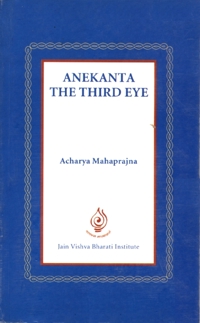
Every decision has four components: matter, place, time and state. On the basis of these four components decisions keep changing. The decision that does not change on the basis of these four elements, is indecisive. Anekanta says do not make any decision without considering matter, place, time and state. Say this decision is being taken under these conditions. If conditions change then decisions also do. The first decision is right under those conditions and the second right in the changed conditions. Both are right, relative to the prevailing conditions. If they had been objective (absolute in nature) they would have been untrue. Only by being relative, they become true. Relative decisions fall within the purview of truth. A man says he would not drink milk and after ten days begins to do so. Some people may say the man who changes his decisions like this is a chameleon. But that is not fair. His decision not to drink milk may be right in the first situation and the decision to drink milk may also be right in the second situation. In dysentery, for example, milk is like poison. If a man ailing from dysentery decides not to have milk, it is a right decision. The ailment is cured. If the same person decides to take milk after getting better, to improve his health, that is also a right decision. We cannot accept any decision as absolute. We should be clear that anekanta is not a labyrinth. This is not one that makes you lose your way or one that complicates matters. It is the mantra for easy and simple solutions to all of life's problems. A man is not cheated and he does not create any new problems if he functions on the basis of anekanta. Relativity is a great solution. When relativity is forgotten then we have conflicts, war. The reason for conflict is lack of relativity. The reason for conflict comes from a single dimensional viewpoint. The reason for conflict comes from not knowing the limits. It is necessary to know the limits.
A patient knocked on a doctor's door. It was midnight. The doctor was sleeping. Hearing the knock he came out. The patient said, "Doctor, a dog has bitten me." Replied the doctor, "Stupid. Look what the board says I do not see patients after nine o'clock at night." Said the patient, "I read the board, doctor, but w hat can I do! The dog did not know that it should not bite after nine o'clock at night."
Without relativity, without knowing the limits, we can talk of cutting, but not of binding.
In this world nobody is complete. Everybody is incomplete. Nothing is absolute, everything is relative. This is a fact in the social context as well as in that of relationships. In its state of existence, every object is complete, whole. Where there is expansion, where a society is being formed, there is relativity and incompleteness. In this world if any man talks of absolute decisions or takes decisions independent of other things, he is committing a mistake. He is cheating himself. There is no principle other than anekanta that can acquaint us with relativity.
 Acharya Mahaprajna
Acharya Mahaprajna
